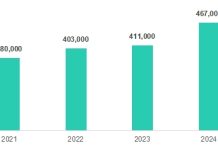The Malaysian International Chamber of Commerce and Industry (MICCI) has expressed serious concerns regarding the government’s recent decision to mandate Employees Provident Fund (EPF) contributions for foreign workers, as outlined in Budget 2025.
While the move aligns with efforts to meet International Labour Organisation (ILO) standards, MICCI warns that it could create unintended economic challenges for businesses and the foreign workforce vital to Malaysia’s economy.
“This policy, though well-intentioned, could inadvertently place substantial financial and operational pressure on industries such as manufacturing, construction, and services, all of which rely heavily on foreign labour to drive productivity,” said MICCI President Christina Tee.
“By increasing operational costs without engaging in comprehensive dialogue with the business community, the decision sends a mixed message to domestic businesses and foreign investors.
“Questions about the stability and predictability of Malaysia’s regulatory environment—key factors for long-term investments—are unavoidable. A collaborative approach with industry stakeholders is essential to achieving balanced, sustainable policy outcomes.”
For businesses, the mandatory EPF contributions represent a direct increase in labour costs, potentially shrinking profit margins and undermining Malaysia’s competitiveness in a cost-driven global market.
The impact on foreign workers is equally significant. Many remit the majority of their wages to their home countries to support their families. Mandatory EPF deductions will reduce their take-home pay, potentially affecting their ability to meet basic living expenses.
Moreover, retrieving EPF funds upon leaving Malaysia may prove administratively complex and time-consuming.
MICCI also highlighted the lack of prior consultation with industry stakeholders as emblematic of broader governance concerns. Sustainable policymaking requires active collaboration with all affected parties—employers, worker representatives, and industry leaders—to ensure practical and impactful solutions.
To mitigate these challenges, MICCI is calling on the government to reassess the policy’s implementation timeline and engage in open dialogue with relevant stakeholders.
“MICCI is ready to work with the government, chambers of commerce, industry bodies, and business leaders to design policies that balance economic growth with fair labour practices,” said Tee.
“Through meaningful consultation, Malaysia can uphold its commitments to worker welfare in line with ILO standards while preserving its reputation as a business-friendly investment destination.”
MICCI advocates for a framework that meets international labour standards without placing undue financial strain on businesses, safeguarding Malaysia’s economic growth and competitiveness.
















